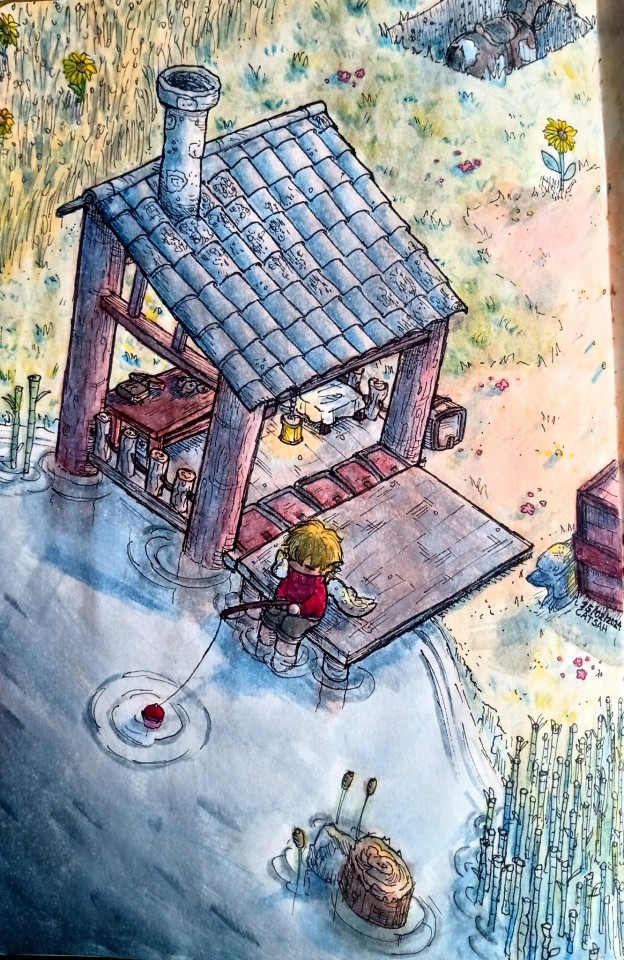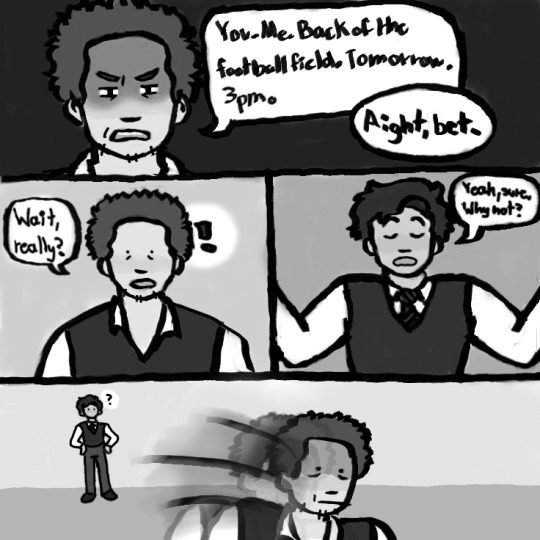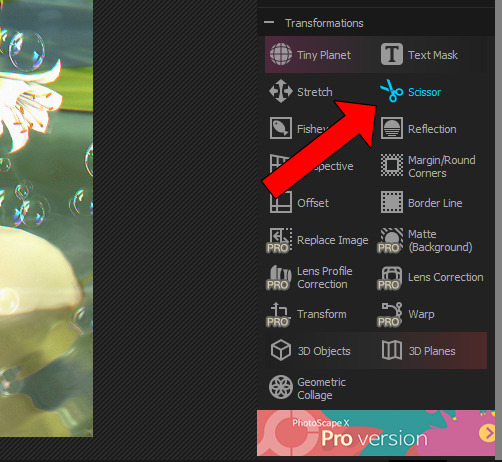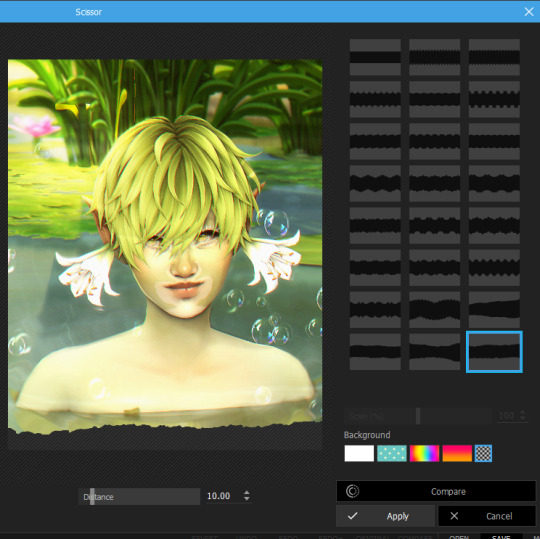#apps and tools i use
Explore tagged Tumblr posts
Text
After many times installing and uninstalling this app I fell in love with it and now I want to post my drawings here! Hello Tumblr, I offer you a drawing of Grian, the fisher of mending books, as my input for this delightful app ♥️

#how to use tags search google#grian fanart#grianmc#hermitcraft grian#hermitcraft#fishing#? i guess#this tool to send posts kinda remembers me of Amino app era#and that scares me a little bit but its a cool tool :3
895 notes
·
View notes
Text
BETTER CALL SAUL!
#this was mostly a test run on procreate dream!#its pretty good but it has a LOT of room for improvement#which i know the developers have been working on since the app is still technically in beta!#but hey i did this in like 3 weeks while working a full time job and also working on other art so#its pretty damn powerful software#good shit if you use procreate already!!#literally the biggest flaws rn are a lack of selection tool an undo/redo button and#and the app itself has a tendency to crash or slow down if theres “too much” going on#like i had to delete all but one of the preloaded animations just so the app would run smoother while i worked#so its still very clearly in its early phase but its good and im excited to see what the developers will do with it#ok review over#better call saul#saul goodman#bcs#jimmy mcgill#breaking bad#animation#brba#video#procreate dreams
731 notes
·
View notes
Text

idk if anyone has done this yet. probably.
sometimes making backgrounds is throwing together every screentone in your camera roll into a single art piece
#i kinda missed “rendering” backgrounds like this i haven't done that in a while#uhhh#tommy coolatta#tommy hlvrai#sunkist hlvrai#hlvrai#mine#the colors look a bit weird bc i don't know jack about color theory#pretend everything looks nice and perfect#i added some details on tommy's face using the pen tool in the camera app#bc i do not want to get on procreate and finish it#travid art#art
222 notes
·
View notes
Text
ITS ALIVE!! ITS ALIIIIVEEE!!
Please forgive the jankiness of it, I haven’t animated since I was 14 and I had no clue how to use this app
But yay!! I can officially make my blorbo move :]

#sams solar flare#tsams solar flare#the Sun and moon show solar flare#my art#the app I used was procreate dream btw#not bad but I really think the app needs to consider adding some more features to make the drawing aspect easier#like come on at least give me a lasso tool#I’m going to try some other animation methods before I settled on anything for certain#but I WILL try animation again#very very soon#it’s an aspect of art that I’ve always wanted to get better at
44 notes
·
View notes
Text
Q's Internet Trinkets v1 is now LIVE!!!
It's a whole directory of cool things I've collected, with 190 links so far! (and more to come in future!!)
art and writing tips
free games
web tools and webtoys
free books and watchable media
awesome things you can learn
mental health resources
a wheel you can spin!
one whole crow!
and more that i haven't elaborated on!!
Special thanks to @good-morning-czernobog for inspiring me to do this, @paperoxalis and my beloved mutuals for bearing witness to my insanity, and to everyone who's been interested in this for their utmost patience. If you have any sites to suggest, shoot me an ask, or email me!
Now go look at my awesome webbed site!! (click the image, or this text)

#q's creations#q's internet trinkets#useful websites#useless websites#art tutorial#art resources#writing tips#writing resources#free books#free games#free movies#mental health#learning#notion#free apps#web toys#web links#web tools#i am so sorry for the ridiculous amount of tags i need this to reach as far as it can ;w;#this thing is my baby
53 notes
·
View notes
Text

romeo!! or rock….? idk he’s the ds guy. y’know
#my art#rock tumbling (sos)#romeo (ds)#bokumono#trying to make the way i draw romeo distinct from rock#romeo is more dog coded than rock#(dog ball antics)#hence he is softer#(i choose to believe this guy can’t surf even though leona has dialogue saying she wants to watch him surf)#he hangs around in the lobby to greet customers while louis is in the kitchen… it’s not labor….#i bet he’s just helping so he can hit on everyone who arrives from mineral town…#harvest moon#harvest moon ds#story of seasons#hmds cute#harvest moon ds cute#he still goes in the rock collection#here’s hoping for a ds remake that gives the characters more distinctions#romeo’s hair is long in the back and his necklace has a slightly different design#those are the only things that i can confidently say aren’t just due to the ds having a limited palette#rock (ds)#also subconsciously shells fanfic snuck into this drawing i think#by durotoswrites. very good fanfic#‘never coloring another fucking sketchbook scribble using the markup tool ever again’ turns out to be a bald faced lie#cora just use ibis or something photos app keeps crashing#no#sorry all ds brainrot lately (brain on fire simulator)#brainrockt….#i tried to capture the vacancy behind his eyes. there’s nothing there#i’m sorry the saturation on my phone was goofed. i’m sorry everyone’s retinas
116 notes
·
View notes
Text

Quick lighting practice
#doodles#sunday doodles#ralsei#deltarune#ya' duck's gettung better at drawing those ram horns i give him#starting to understand how the form wraps a little better#i do all of these colored sunday doodles in ibis paint#it has a feature that lets you remove the background of a lineart drawing and just keep the black lines#which makes it super easy to color whatever i scribble once service is over#downside is most of its brushes arent very similar to what i use in clip studio so i have NO idea how to match my normal coloring style#thats what makes it a fun challenge though#i think im getting the hang of the app#really not bad for a free app tbh; its got *most* of the super important tools#i abuse the blending tool on csp though so not having it in ibis paint means i gotta get creative haha#y'all have fun knawing at what context this expression would occur in with this lighting#i just like red lighting :3
28 notes
·
View notes
Text

i would like to award kaveh the highest honor i can bestow 🖤💚🤍
open for better quality | no reposts
#kaveh#genshin impact#genshin#fanart#myart#doodle#this is The Prettiest kaveh and probably The Prettiest art i've ever drawn period#he is very special to me for many reasons#i love him so so much and i'm very thankful to him#and i tried out some of the new csp assets i got recently hehe#the sun/rainbow/dust and lace and clouds are all tools i'm trying out for the first time#and look i incorporated the wood pencil brush#it's so my style it makes me feel like i'm drawing traditionally which is enjoyable#wish i could redo all the apps i've submitted in the past to include this in my portfolio bc-#this lineart feels like it's truest to my style!! and this is what i'm really capable of!!#gonna stop patting myself on the back here but. i'm very happy w/ how this came out#oh and as a note i looked up flowers to put in the bouquet and acanthus means 'fine arts' which was fitting#one site said they can be used to celebrate an architecture graduate so!! perfect for kaveh
379 notes
·
View notes
Text
we should start a collection of small things that helped us with adhd organisation and such, like literally the tiniest things, I'll start
hook for my keys right at the door, keys always go there, don't lose my keys anymore
Tray for meals/dishes, less crumbs everywhere from eating in places that aren't a table bc crumbs go on tray + can carry more dishes back to the kitchen at once so less dishes everywhere
Boxes. So many boxes. When cleaning up just put everything I don't immediately have a place for in box. Sort box later (or not). Mess is contained in box (for now)
#ADHD#actually adhd#adhd tips#Please reblog I want many ppl to add to this#Bc I think we often don't mention the small things#But the small things are often the biggest game changer#Bc like. They're easier to implement and actually stick to than big organisation tools like using a new app or journal or whatever#Like that tray is such a game changer
39 notes
·
View notes
Text
Really basic study tips. As in, you have no idea where to start, or you've been floundering for X period of time not making progress.
Total beginner?
Go to a search engine site. Whatever one you want Google.com, duckduckgo.com, or a searx.space site will work (I like search.hbubli.cc a lot). I think a non-google search engine will give you less ads and more specific results though so keep that in mind.
As a total beginner, search for some articles and advice to help you start planning HOW you are going to study a language. Search things like "how to learn X" where X is the language, "how i learned X," "guide to learn X." Ignore the product endorsement pages as best you can, you're looking for personal blogs and posts on learner forums like chinese-forums.com and forum.language-learners.org. After reading a few of these, come up with a list of general things you need to learn. This list will generally be: to read, to listen, to write, to speak. The articles/advice you find will likely mention Specific Study Activities people did to learn each of those skills - write them down! You might not do all those study activities yourself. But its good to know what possible study activities will help build each of the 4 skills.
Now get more specific. Think about your long term goals for this language. Be as SPECIFIC as possible. Things like "I want to pass the B2 exam in French" (and knowing what CEFR levels are), or "I want to watch History 3 Trapped in chinese with chinese subtitles" or "I want to read Mo Dao Zu Shi in chinese" or "I want to play Final Fantasy 16 in japanese" or "I want to make friends with spanish speakers and be able to talk about my hobbies in depth, and understand their comments on that subject and be able to ask what they mean if I get confused." Truly be as specific as possible. Ideally make more than one long term goal like this. And then specify EVEN MORE. So you want to "pass the B2 exam in French" - why? What real world application will you use those skills for. A possible answer: to work in a French office job in engineering. Great! Now you know very specifically what to look up for what you Need to actually study: you need to look up business appropriate writing examples, grammar for emails, engineering technical vocabulary, IN addition to everything required on the B2 exam. Your goal is to read mdzs in chinese? Lets get more specific: how many unique words are in mdzs (maybe you want to study ALL of them), how much do you wish to understand? 100% or is just understanding the main idea, or main idea and some details, good enough? Do you want to learn by Doing (reading and looking up things you don't know) or by studying ahead of time first (like studying vocabulary lists). Im getting into the weeds.
My point is: once you have a Very Specific Long Term Goal you can look up how to study to accomplish that very specific goal. If you want to get a B2 certificate there's courses and textbooks and classes and free materials that match 100% the material on the B2 test, so you can prioritize studying those materials. If your goal is to READ novels, you'll likely be looking for "how to read X" advice articles and then studying based on that advice (which is often "learn a few thousand frequent words, study a grammar resource, use graded reader material at your reading level, extensively and intensively read, look up unknown words either constantly or occasionally as desired when reading new material, and continue picking more difficult material with new unknown words"). Whatever your specific goal, you will go to a search engine and look up how people have accomplished THAT specific goal. Those study activities they did will be things you can do that you know worked for someone. If you get lucky, someone might suggest ALL the resources and study activities you need to accomplish your specific goal. Or they will know of a textbook/course/site that provides everything you need so you can just go do it. I'll use a reading goal example because its a specific goal i've had. I'd have the goal "read X book in chinese" so I'd look up "how to read chinese" "how to learn to read chinese novels" "how i read chinese webnovels" and similar search terms. I found suggestions like these on articles I found written by people who managed to learn to read chinese webnovels: Ben Whatley's strategy had been learn 2000 common words on memrise (he made a deck and shared it), read a characters guide (he linked the article he read), use graded readers (he linked Mandarin Companion), use Pleco app and read inside it (he linked Pleco) and in 6 months he was reading novels using Pleco for unknown words. I copied most of what he did, and did some of my own other study activities for theother 3 listening speaking writing skills. And in 6 months I was also reading webnovels in Pleco. Another article was by Readibu app creator, who read webnovels in chinese just looking up TONS of words till they learned (real brute force method). But it worked! They learned. So copying them by using Readibu app ans brute force reading MANY novels would work. Another good article is on HeavenlyPath.notion.site, they have articles on specifically what materials to study to learn to read - their article suggestions are similar to the process I went through in studying and Im confident if you follow their advice you'll be reading chinese in 1 year or less. (I saw one person who was reading webnovels within 3 months of following the Heavenly Path's guide plan). LOOK UP your specific long term goal, and write down specific activities people did to learn how to do that long term goal. Ideally: you will have some
SHORT TERM GOALS: you will not accomplish your long term language goal for 1 year or more. Probably not for many years. So make some short and medium term goals to guide you through studying and keep you on track. These can be any goals you want, that are stepping stones to the specific long term goals you set. So for the "read mdzs in chinese" long term goal, short and medium term goals might be the following: short term: learn 10 common words a week (through SRS like anki or a vocabulary list), study 100 common hanzi this month (using a book reference or SRS or a site), read 1 chapter of a grammar guide a week (a site or textbook or reference book), medium term: read a graded reader with 100 unique words once I have studied 300 words (like Mandarin Companion books or Pleco graded readers for sale), read a 500 unique word graded reader once I have studied 600 words, read 秃秃大王 and look up words I don't know once I have studied 1500 words (read in Pleco or Readibu or using any click-translator tool or translator/dictionary app), read another chinese novel with 1500 unique words, read a 30,000 word chinese 2 hours a day until I finish it, read another 30,000 word novel and see if I can finish it in less time, read a 60,000 word novel, read a 120,000 word novel, read a novel extensively without looking any words up and practice reading skills of relying on context clues (pick a novel with lower unique word count), read a novel a little above your reading level (a 2000 unique word count if say you only know 1700 words), go to a reading difficulty list and pick some novels easier than mdzs to read but harder than novels you've already read (Readibu ranks novels by HSK level, Heavenly Path ranks novel difficulty, if you search online you'll find other reading difficulty lists and sites). Those shorter term goals will give you things to work for this week, this month, this year. An example of study goals and activities might be: study all vocabulary, hanzi, grammar in 1 textbook chapter a week (lets say 20 new words/10-20 new hanzi,1-5 new grammar points - or alternatively you have 3 SRS anki decks for vocab, hanzi, grammar) along with read and look up unknown key words for 30 minutes a day (at first you may read graded readers then move onto novels). Those are short term goals you can ensure you meet weekly, and they also contribute to being able to read better gradually each month until you hit long term goals.
If you are very bad at making your own schedule and study plans: look for a good premade study material and just follow it. A good study material will: teach reading, writing, speaking, and listening skills, all the way to intermediate level. You may need to find multiple premade resources, such as 1 resource for writing/reading (many textbooks that teach 2000+ words and basic grammar will suffice) and 1 for speaking/listening (perhaps a good podcast, glossika, a tutor). Ideally formal classes will teach all 4 skills to intermediate level if you take 4 semesters of classes as an adult (beginner 1, beginner 2, intermediate 1, intermediate 2). Especially if the classes teach in accordance with trying to match you to expected defined language level skills (so formal classes that have syllabus goals that align with HSK, CEFR, or national standards of X level of fluency). So formal classes are an option. The same tips as above apply: make short term goals do do X a week, like study 30 minutes to 2 hours a day, to learn 10 new words a week, to get through X chapters a month, to practice speaking/reading/writing/reading oriented activities to some degree.
My short advice for picking a premade resource if totally lost: pick a starting material that covers 2000 words, basic grammar, and has dialogues if you don't know where to start. That will be enough to cover roughly beginner level language skills. I suggest you study by: studying the vocabulary and grammar of each chapter, listen to the dialogue with and without translation repeatedly until you understand it (listening skills), read the dialogue with and without translation (reading skills), write out example sentences using the new vocabulary and grammar (writing skills, the textbook exercises usually ask you to do this), speak your example sentences out loud (speaking practice), record yourself saying the dialogue and compare it to the dialogue audio - repeat this exercise until you sound similar in pronunciation to dialogue (speaking exercise - shadowing). Most decent textbooks will allow you to come up with similar activities to those listed above, to study some writing reading speaking listening. I like the Teach Yourself books as an example of the most basic version of what you need. Many languages have much better specific textbooks of that language. But if you're totally lost, get a Teach Yourself book and audio free from a library or for 10 dollars (or ANY equivalent book that teaches at least 2000 words and grammar) and go through it. If you buy a language specific textbook: keep working through the series until you've learned 2000 words and covered all basic grammar. For example Genk 1 and 2 cover 1700 words so you would want to work all the way through Genki 2 and ger near 2000 words before branching off to a textbook for intermediate students, or into native speaker materials. (Another example is I found a chinese textbook once that only taught 200 words... as a beginner you would not find that book as useful as one with more vocabulary)
Another adequate premade resource option: if you lile SRS tools like anki, look up premade decks that teach what you need to learn as a beginner. For Japanese you might look up "common words japanese anki deck" (Japanese core deck with 2k or more words is likely an option you'll see), "japanese grammar anki deck" (Tae Kin grammar deck is an option that covers common grammar), "JLPT kanji deck" or "kanji anki deck" or "kanji with mnemonics anki deck" (to study kanji). Ideally you study vocabulary, vocabulary, kanji, and ideally some of these anki decks will have audio and sentence examples for reading practice. Like with a textbook, you would attempt to do exercises which cover reading writing speaking listening. For reading and writing you may read sentences on anki cards, and write or type example sentences in a journal with new words you study and new grammar points. For listening you will play the sentence audio of a card with eyes closed until you hear the words clearly and recognize them, and for speaking you'll speak out the sentences and compare what you say to the audio on the card.
Keep in mind your specific long term goals! If your goal is speak to friend about hobby, you may follow a textbook and still need to ALSO make yourself practice talking weekly (on a language exchange app, with a tutor, with yourself, shadowing dialogues, looking up specific words you wish to discuss). If your goal is to read novels, you will likely need to seek out graded readers OUTSIDE your textbook and practice reading gradually harder material weekly. If your goal is listening to audio dramas, you will want an outside podcast resource likely starting with a Learner Podcast (chinese101, slow chinese, comprehensible chinese youtube channel) then move into graded reader audiobooks, then listen to audio dramas with transcripts, then just listen and look words up.
Once you hit lower intermediate: I'm defining that here as roughly you have studied 2000+ words, are familiar with basic grammar and comfortable looking up more specialized grammar information, and if you used a premade material then you have finished the beginner level material. If you desire to stay on a premade route then pick new resources made for intermediate learners. Do not dwell in the beginner material forever once you've studied it, continue to challenge yourself and learn new things regularly. (No matter what, continue to learn new things regularly, if you do that then every few hundred hours of study you WILL make significant progress toward your goals). Once you have hit intermediate it is also time to start adding activities that work toward your Very Specific Long Term goals now if you didn't already start. If you want to watch shows one day, this is when you start TRYING and get an idea of how much you understand versus how much you need to learn and WHAT you need to learn to do your goal well. If you want to read novels then start graded readers NOW if you havent already and progress to more difficult reading eventually into reading novels for native speakers. If you want to talk to people, start chatting regularly. If you want to take a B2 test, start studying language test specific study materials, practice doing the tasks you must be able to do to pass the test (so you can see what you need to learn and gauge progress over time), take practice tests. Intermediate level is when SOME stuff for native speakers will be at least understandable enough you can follow the main idea. Or at least, if you look up some key words you'll be able to grasp the main idea. Start engaging with stuff in the language now. For several reasons. 1. You need to practice Understanding all the basics you studied. Just because you studied it doesnt mean you can understand it immediately yet, you have to practice being in situations that require you to understand what you studied. 2. You also need to gauge where you are versus where you want to be, in order to set new short term goals. Once you do things in the language, you will see what specifically you need to study more. 3. By doing the activity you wish to do, you will get better at doing it. This is also a good time to mention that: if you wish to get better at speaking or writing now is the time to practice more. Just like listening and reading, you'll have to Do it more to improve.
The leap from using materials for beginners to materials for intermediate learners is harsh. It just is. The first 3 to 6 months you may feel drained, like you didn't learn much after all, annoyed its so much harder than the beginner material catered usually specifically to a learner's language level. Push through. I suggest goals like "listen to french 30 minutes a day" or "read 1 japanese news article a day" or "chat with someone for 1 hour total a week" or "watch 20 minutes of a show a day" or "write 1 page a day" and look up words you dont know but need to understand something or communicate to someone. Do X for X time period or X length of a chapter/episode type goals may be easiest to stick to during this period. Gradually, the time spent doing activities will add up and it will suddenly feel EASIER. Usually around the time you start understanding quicker and recalling quicker what you studied as a beginner. Then it keeps improving, as you gradually learn more and more. At first, picking the easiest content for your study activity will make the transition to intermediate stuff slightly less drastic. Easier content includes: conversations on daily life that only gradually add more specific topics (so you can lean on the beginner daily life function vocabulary), podcasts for learners entirely in target language and podcasts with transcripts, novels with low unique word counts (ideally 2000 unique words or less until your vocabulary gets bigger), shows you've watched before in a language you know (so you can guess more unknown words and follow the plot even when you don't understand the target language words), video game lets plays (ideally with captions) of video games you've played before, playing video games you already have played before and know the story for, reading summaries before starting new shows or books so you know what the general story is, reading books that have translations to a language you know (so you can read the translation then original or vice versa for additional context). Using any tools available (dictionary apps, translation apps like Pleco and Google Translate and click-translate web browser tools, Edge Read Aloud tool, reader apps like Kindle and Readibu, apps like Netflix dual subitles stuff).
Last mention: check in with your goals every so often. You might check in every 3 months, and say you notice you never manage to study daily (if that was your short term goal). That could be a sign it might be better to change your study schedule to study a couple hours on the days your life schedule is less busy, and skip study on busy days. Or it may be a sign the study activity you're trying to do daily is Very Hard for you to stick to, and maybe you should switch to a different study activity. (Example would be: I can't do SRS flashcards consistently, so when I got tired of SRS anki after a few months as a beginner, I switched to reading graded readers daily to learn new vocabulary then reading novels and looking up words. Another example: I love Listening Reading Method but could never do it as it was designed, so after a month of only doing 15 hours of it instead of the 100 hours the method intended at minimum in that time, I decided to modify that study activity into something I could get myself to do daily and enjoy more).
And, of course, its okay if what works for one person doesn't work for you. Everyone's different. As long as you are regularly studying some new things, and practicing understanding things you've studied before, you will make progress as the study hours add up. It may take hundreds of hours to see significant progress, but you Will see some progress every few hundreds of hours of study. I made the quick start suggestions for beginners above, because I have seen some people (including me) get lost at the start with no idea what a good resource looks like and no idea what to study, or how to determine goals and progress on those goals.
#rant#reference#resources#study plan#langblr#i could also make a side post lol on just HOW many language learning apps/tools are distractions for beginners#because they barely teach like 300 words! but readers spend YEARS on them!#u can cover 2000 words in 1 year. even high school classes cover that in 2 years. but many an app have u spending 4 years on 2000 words#then u get beginners mad they never Learned to do stuff in the language despite All Tgat Study#not realizing the apps problem was it simply ONLY covered beginner material. so it was only gonna be useful for 6 months to 2 years tops.
115 notes
·
View notes
Text

one year redraw 👍
#bonk.png#id in alt text#i was a teenage exocolonist#exocolonist#teenage exocolonist#iwatec#iwatex#i was gonna add the og text but if the app im using has a text tool i couldnt find it#n theres no way im handwriting that#fun fact about the og drawing the reference pic i was using for nomi nomi was flipped n i didnt realize it until i was drawing sol#n then i didnt use any actual references for this one aside from my first drawing lol#nomi nomi's eyes were meant to look like old anime yknow like astro boy n princess knight but then i didnt color it that way
98 notes
·
View notes
Text
kinda funny how most programmers would prefer to not have to touch apple products with a ten-foot pole but if you talk to basically any designer over like 25 they'll swear up and down and backwards to friday that nothing could ever hold a candle to any apple product
#part of this is probably tied into the adobe suite/creative cloud being made mostly just for apple. for some reason.#so it doesn't work as well on windows and the app versions for android are pitiable#idek if you can use it on linux at all#i'm a designer btw but I'm definitely in the programmer camp#smh adobe get your freaking ACT TOGETHER I DON'T EVEN LIKE PHOTOSHOP BUT I'D SURE LIKE IT A LOT MORE IF IT WORKED ON MY COMPUTER#you're telling me I can render 3D modeling in maya just fine but I can't use the blur tool in photoshop without it crashing????#what kind of sick joke.....#apple v windows v linux#computer os#computers#programming#designers#adobe creative cloud
8 notes
·
View notes
Text
Procreate is one of those drawing applications where I’ll have been using it for 6 years and then watch a video called like “Top 10 things you didn’t know you could do in procreate!” with the expectation that it’ll just talk about like creating a color palette out of a photo or something else I’m already aware of only for the person to detach the color wheel and drag it around the screen while drawing
[ID: Screen recording demonstrating the example above. The person recording detaches the procreate color menu, drags it around the screen, and then uses it to quickly switch between colors before closing it. End ID]
#somewhat art related#My jaw dropped when I saw them do that#there’s so much hidden stuff in this app#did you know when first using the app it took me a year to learn how the fill tool worked?#previously I’d just been coloring in the lineart by hand#took me only a bit longer to learned what a “reference layer” was lol#also the video included is my own screen recording just to be clear#it’s hard to see since it doesn’t show where I’m touching but you see that thin grey line/bar on top of the color menu#pull down on that#and click the “X” when you want to get rid of it#procreate#procreate tips#procreate hacks#video#id included#id in caption#you can’t do alt text for videos (at least I don’t think you can) so I put it in the caption#and the video is meant to demonstrate the color menu detaching so that’s what I described#video described
23 notes
·
View notes
Text

inspired by this post
#I tried to blur Mischa to look like he’s running but apparently the app I use for drawing doesn’t have a blur tool :(#can you tell I used to make comics. all the damn time.#ride the cyclone#rtc musical#rtc#mischa bachinski#mischa rtc#noel gruber#noel rtc#noel ride the cyclone#nischa#does this count as nischa?#sure I guess#my art hehe
79 notes
·
View notes
Text

He coloured, shaded and got his highlights. Now to spend too much time on him and debate on adding him to the lore of the little knights.
#pokemon#darkrai#my scribbles#app used: art flow#think i finally got my blur brush fixed too#i used the “old brush” as a blur in the blur tools to get the blend effect i want
27 notes
·
View notes
Note
hi!! Im curious to know how you did the tear affect on the photos in this post? - /751582186773282816/a-carrot-and-a-clementine-sitting-under-a-tree?source=share
hiya hun! i use this editing app called photoscape x (its free) , there's a feature that's labeled as "scissors" it auto adds a cut/torn overlays to your pics!


i did see someone who did a tutorial too but for the life of me can't remember who, they used a torn paper overlay from google!
#i've been using this app for years#has all the tools lights overlays texts and etc that i need#i barely use photoshop anymore#only for technical or funky edits that i do#wcif#i guess#ask
15 notes
·
View notes